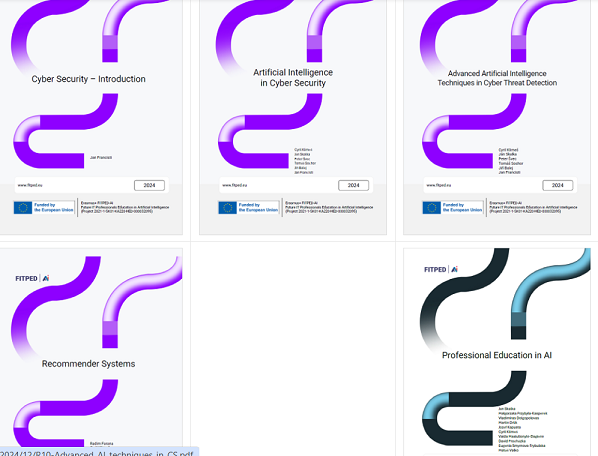The FITPED-AI project concluded on October 31, 2024, with its outputs and lessons learned consolidated in the study titled Professional Education in AI. This project addressed the critical need for artificial intelligence expertise as AI continues to reshape industries and societies.
The rapid integration of AI into diverse fields has created an unprecedented demand for professionals skilled in designing, developing, and implementing AI technologies. While AI expertise encompasses a wide range of skill levels, higher education institutions play a pivotal role in cultivating the talent pool necessary to meet this demand.
Universities and colleges provide students with structured pathways to build their theoretical knowledge and practical skills in AI. Through comprehensive curricula, students explore foundational concepts such as machine learning, data analytics, and AI ethics, while gaining hands-on experience through research initiatives and applied projects. These educational experiences not only prepare students for real-world challenges but also form the foundation for addressing the pressing need for AI professionals.
The strategic importance of higher education in AI development has made research in this field a priority. Understanding how AI concepts can be effectively introduced, taught, and assessed within academic settings is critical for designing curricula that align with industry expectations. Simultaneously, higher education institutions are uniquely positioned to promote ethical and responsible AI development, ensuring that students are equipped to navigate the societal implications of their work.
By emphasizing higher education as a cornerstone for building AI literacy and competence, the FITPED-AI project and its accompanying study aim to bridge the gap between the growing demand for AI expertise and the current supply of qualified professionals. The insights gained through this project will serve as a valuable resource for educators, policymakers, and industry leaders striving to meet the challenges of an AI-driven future.

